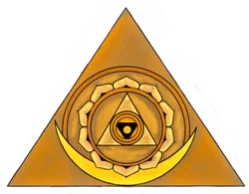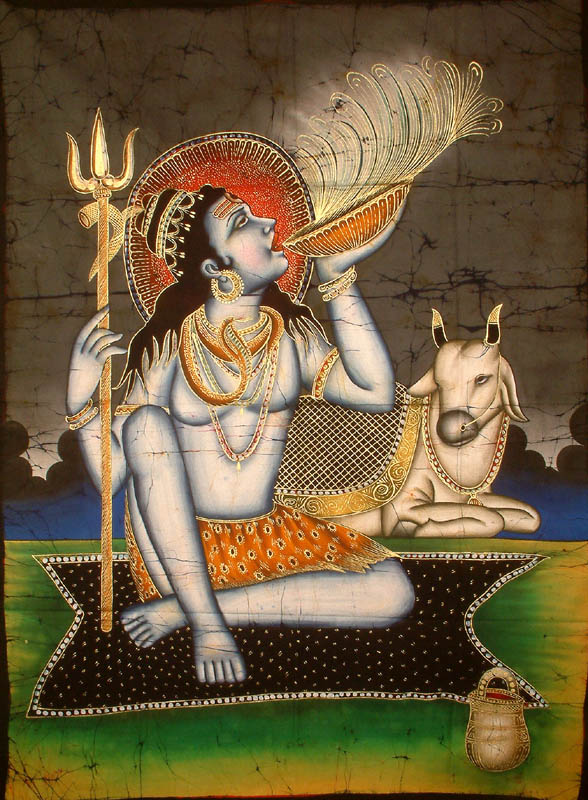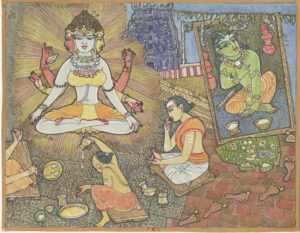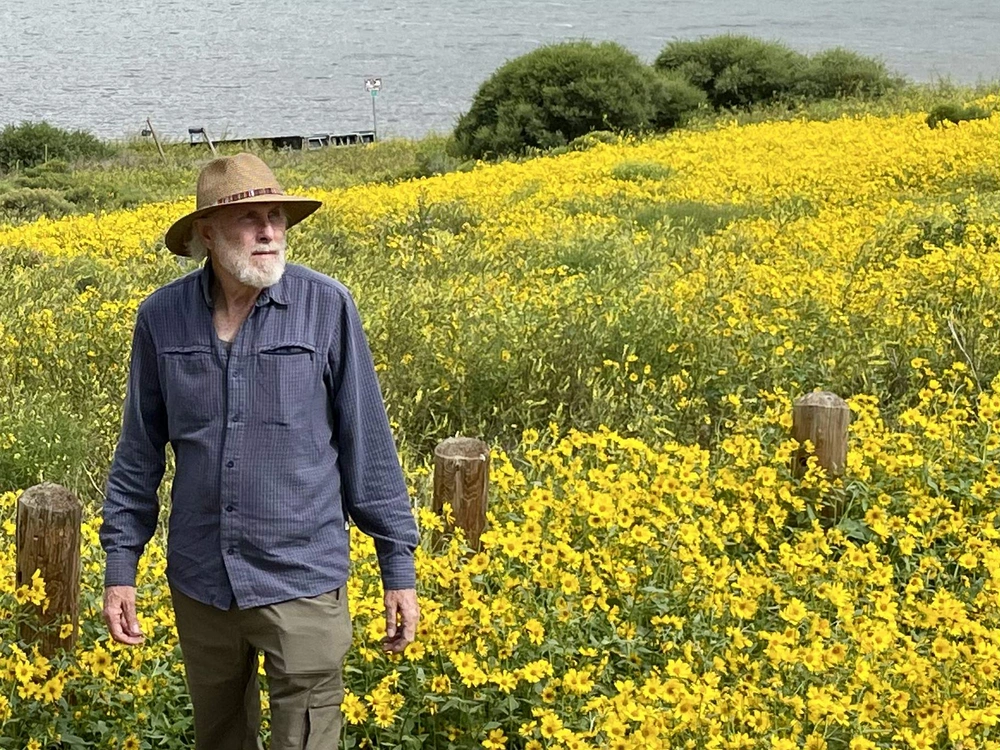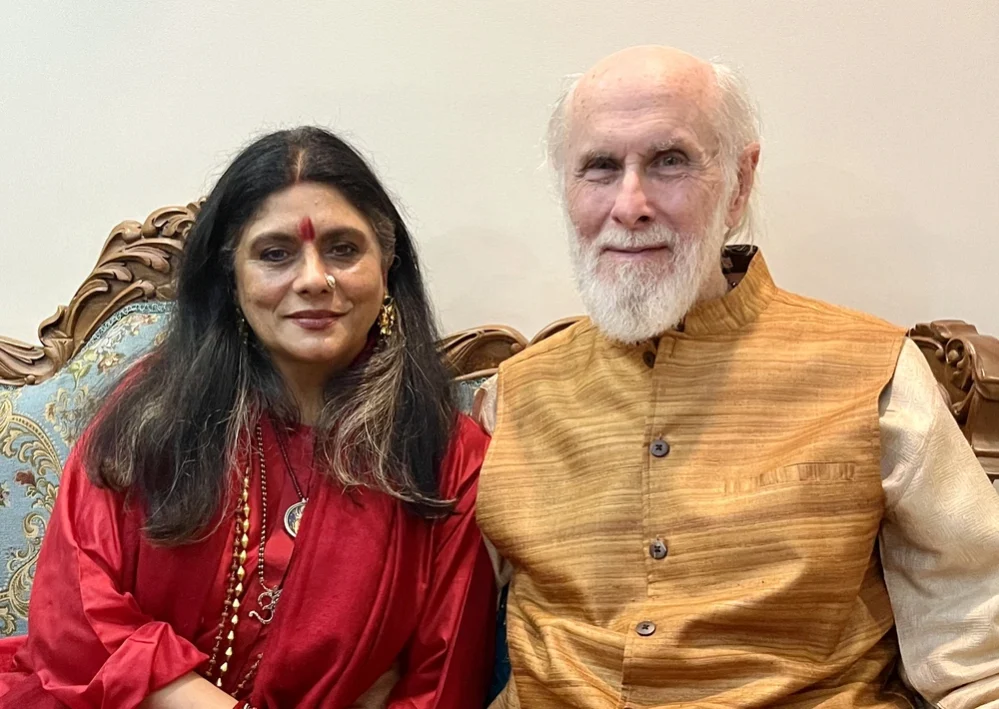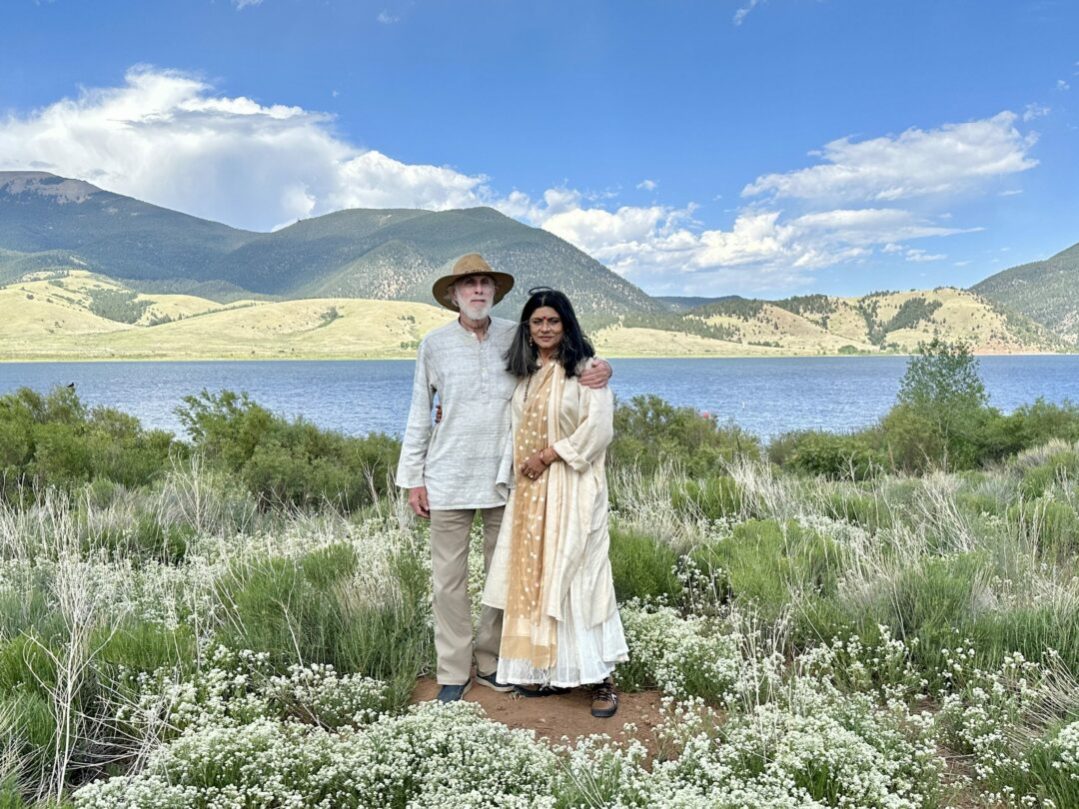Shiva as the Drinker of Poison
Shiva is the great ecstatic deity of Yoga, the supreme Lord of the highest inner energy and transformation. He has the deepest experience of bliss (ananda) as his constant state of being. He is the foremost drinker of the Soma, the amrita or mystic nectar which is the delight inherent in all existence. For him everything is bliss. He knows how to extract the Soma everywhere.
Yet Shiva is also Nilakantha, the Deva whose throat is blue from being able to drink poison and not be harmed by it. He is not only the foremost drinker of the Soma but also able to drink poison. He can drink any poison and survive, in fact flourish.
There is an important connection between these two aspects of Shiva and several lessons to be drawn in our own experience.
Actually everything in life is or can be poison. Even our most blissful and happy experiences of love, prosperity or vitality as limited by time and death can become poison. Brooding over the joys of the past can be as painful as going over the sorrows. The end of our success or fulfillment itself can cause a greater pain than failure and loss in the first place.
At the same time everything in life is nectar or Soma. Even our most painful experiences of death, sorrow, parting, iniquity, and tragedy contain an immortal nectar that we can draw from. There is in these painful events the rasa of being able to connect to what transcends this mortal realm. There is the ecstasy of the inner witness, knowing a Divine grace is always with us to save us and take us beyond.
Shiva is the great lord of time. He is eternity and he is the present moment. As the eternal, he extracts the essence from the fleeting dance of time. He holds eternity as he dances through every moment, never losing his equipoise. In dynamic stillness he olds both being and becoming. He is the nectar of eternity and the poison of time. Time turns eternity into poison. Eternity turns time into nectar.
Shiva’s most famous chant is the Rudram from the Yajurveda. This set of ancient, cryptic and melodic Vedic mantras honors Rudra, the fierce form of Lord Shiva, in all the terrible, dangerous and challenging aspects of life like sorrow, pain and conflict, in the snakes and the wild beasts, in the butcher and the thief, in natural calamities, in sickness, separation and death – in all that life can use to take us down.
It is only after one has gone through trial and tribulation that one can find lasting peace. It is only after one has taken in the poison and transformed it that one can find the inner nectar. Yet this is not a matter of stoically enduring sorrow, having a stiff upper lip or being thick skinned so as not to be hurt by anything. It is a matter of positive joy in which one rests in the poignancy of all experience, in the delight of being, and the beautiful light of consciousness that pervades everything. Doing this in the happy side of life is one thing. Finding it even in the unhappy side is another. One must be able to feel the pain without becoming pained by it. One must touch happiness in sorrow, delight in pain and love even in rejection.
Rasa and Bhava
Life presents us with various rasas (essences) and bhavas (feelings and emotions) through which our experiences are colored. It is the rasa and the bhava that matters, not simply the form. The rasa is the nectar hidden in the flower of our experience. Do we imbibe that nectar or simply pick the flower and watch it fade? How we handle our experience is more important than what the experience is in its own right.
Great Tantrics like Abhinavagupta teach us the secret of all the rasas. In this regard, all emotions are rasas. The nine emotional rasas are love, anger, disgust, courage, joy, fright, compassion, wonder and peace. Like a great artist or performer one must come to understand and be able to express all these rasas in their full scope. Then emotion becomes a tool of divine feeling and eternal joy which raises us up, not a poison that brings us down. These emotions belong to the Divine artist. When we expropriate them at an ego level, they become poisons.
In Tantra, emotion is the main area in which our life energy, our prana or Shakti is held. Suppressing emotion is like suppressing life. It causes death. But expressing raw emotion at an ego level is also destructive and disintegrating. The key is to go to the rasa of the emotion in the dance of Shiva, in which the Shakti will naturally be released.
Of course, the nature of the experience we seek is . We should seek out the higher rasas or immortal influences in life: the beauty of nature, the sacred energy of temples, the company of spiritually exalted souls, meditating on great teachings or contemplating great works of art. We should not waste our time running after what is vulgar, petty, trivial or superficial. Yet we should not become fixated upon it negatively by opposing it, by being judgmental, moralistic or hypersensitive. We must look for the higher rasa and pursue it, not just worry about the lower rasa.
The problem is that our lives today seldom have real rasa in them. They lack inner juice, vitality or substance. We are caught in a mundane world of personal assertion and acquisition that leaves us overextended if not exhausted. We are constantly on the run working, traveling, with the media influences, keeping our lives in order, avoiding disease and in our little free time, we pursue pleasure as a distraction to give us space from our hectic routines. The rasas that we pursue are either financial or media based, measured in money or social recognition. These rasas do not engage the inner being, and so we end up empty in the end in spite of all the apparent abundance around us.
Dealing with Life’s Poisons
We cannot avoid some poison in life, whatever we do. Even if we pursue the inner life, we have to deal with the poison of negative emotions from family or friends who feel that we are leaving them behind. If we cannot handle this poison, then our spiritual search comes to an end and we fall back into the confines of ordinary emotions, becoming puppets of the needs and desires of others. If we endure this negative force, like Mirabai confined in her room for her love of Krishna, we will find that Krishna will come to us wherever we are. But that requires a special courage that few are able to find. It is easier to conform than to chart out new inner worlds.
We have many poisons to contend with in our ordinary life struggles. Often what we thought was nectar turns into poison with failed relationships, failed businesses or friends that become enemies.
We end up projecting our own poison on the world as well. We find more pleasure and comfort in the pain and failures of others than in their successes. We find more entertainment in destruction than creation, which our modern movies clearly reflect.
Our culture is hurling poison on our environment. This takes many forms as the pollution of the air, water or soils from toxic chemicals, as agitated radio waves from our mass media and communication networks crowding the atmosphere, or as the noise, debris and garbage that we mindlessly use to lay waste to nature.
Our bodies have potential poisons from the many pharmaceutical or recreational drugs that we take, from our fast food that is devoid of prana, or from the air or noise from the polluted world around us. We pursue detoxification at the level of health, not realizing that this is just the tip of a greater problem.
So we must ask: What is the secret how to handle the poison and find the nectar? Shiva’s throat is blue from having drunk the poison. The poison never reaches his heart. He holds it at the level of the throat. The inner heart or hridaya, the heart of Shiva, the seat of the soul or Atman is ever free of this poison. It is untouched by whatever happens in the realm of time, space and action.
Shiva’s pure awareness is the rasa of rasas. It is the illuminating power of light, the life-giving power of water, the warmth and radiance of fire and the unpredictable impetuous power of the wind. It is the love which embraces life and death, joy and sorrow. It is the prana of prana, the eye of the eye, the mind of the mind as the Upanishads say. It is the beauty of the young woman, the strength of the young man, the fearlessness of the lion, the shade of a vast tree, the stability of a high mountain. Whatever the rasa or essence is in anything making anything into the unique thing that it is, this pure awareness or Shiva consciousness is the supreme rasa.
But unless we reach that center of the heart of Shiva the poison will affect us. We must learn to hold the poison at the level of the throat and not let it reach the heart. This is to turn the poison to nectar at the level of the throat. The throat is the seat of the buddhi or discriminating mind in yogic thought.
The Poison and the Nectar
We must learn to discriminate the nectar from the poison in our experience. Both factors are always there in whatever happens. Will we embrace the immortal nectar or the poison of transience? This is the basic choice we have in life, the basic action of our inner intelligence which determines the real value of all that we attempt.
The problem for us is that we think that what is poison is actually nectar. And what is nectar for us is actually poison. When the bearer of the Divine wine cup offers us the ecstatic drink, we turn away from it as poison. Instead we imbibe our mundane poisons as nectar, going after food that makes us sick, or experiences that land us up in sorrow. We first need the discrimination to know what is really nectar and what is really poison.
This requires already having developed a taste for the immortal nectar, which means that our cravings for the mortal nectars, the hidden poisons, has waned. It requires aspiring for something beyond ordinary humanity and our mundane affairs.
Actually nothing is really poison and nothing is really nectar. Whether anything is poison or nectar depends upon how we see and use it. The inner vision in going to the essence pursues the nectar. The outer vision in holding to the form ends up with poison. True discrimination is not a matter of analysis but a change of vision.
Shiva is the mountain God and Soma grows on the mountain. The mountain in one sense is the meditative mind. The mountain is the mind in its state of stillness which allows the Soma to flow. This is the mind merged into the heart, not the intellectual mind caught up in its own concepts. This state of stillness allows the Soma to come forth. Whatever we respond to with a deep silence and peace must become Soma for us. In Vedic thought, Soma is extracted by being crushed between two rocks. The rock is the mind like a mountain, which is also the philosopher’s stone that can transmute base metal into gold, which is another metaphor like turning poison to nectar or darkness into light.
How do we reach that inner heart of Shiva? It is first by embracing death and sorrow. Let the poison put an end to that which must die. Let the poison poison itself as it were. If one becomes the death of death, then there is nothing left over that can die.
This means being able to withdraw from our senses, vital urges and mental impulses into that aspect of our nature which is eternal, into the presence of Shiva within us. However, this is not to deny the senses, emotions or mind. It is to hold to the rasas or essences that they reveal. This using the rasas to withdraw within in is another Tantric secret. It also uses the rasas to expand our awareness to the entire universe around us. It makes Yoga not into a dry asceticism but an alchemical search for cosmic delight.
The real poison is that of the ego itself, which is the outer self born of desire, time and karma. Whatever the ego becomes fixated on becomes a kind of poison. This ego is not our true Self or real individuality, the real person within us. This poisoned or toxic self reflects the influence of the forces of time and disintegration around us. We must learn to let that ego-self go along with its poisons and hold to the deeper longings of the soul behind its outer actions.
Shambhu and Nilakantha
Yet whatever poison is projected upon us, we must first wish the other person well for it. We must assume the attitude of Shiva, the giver of peace and happiness, when dealing with the negative attitudes of others. We must not embrace the poison or even try to fight against it. This form of Shiva is called Shambhu or the giver of blessings. His state of being is Shambhavi or the state of granting blessings from one’s vision, holding to the stillness of the rasa in the dynamic flow of the Shakti.
When life’s poisons come to us, let us remember Nilakantha, lord Shiva. Let us remember that whatever poison we do not react to but rather look for the nectar hidden behind it becomes neutralized. The ocean can take in even muddy waters. If we ourselves develop the Soma, the lesser minded may feel us as a poison. As we learn to discover this essence, we may find the ordinary actions to lose their attraction or we may find them to reflect a greater cosmic passion and delight of which they are but a reflection.
It is the Soma that endures. If we find and hold to our Soma, the poisons may challenge us but cannot enter into us. Shiva in the heart is Soma. We must learn how to work with both Nilakantha and Soma. Nilakantha takes us to Soma.
Vamadeva Shastri
